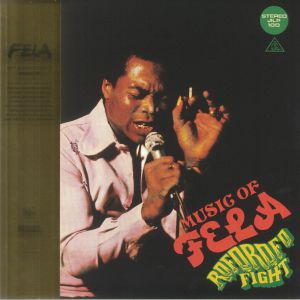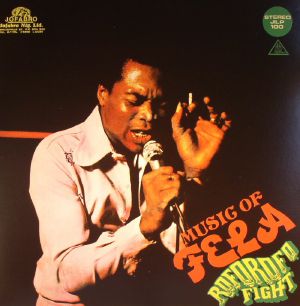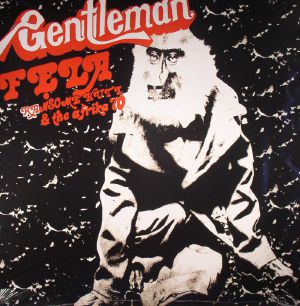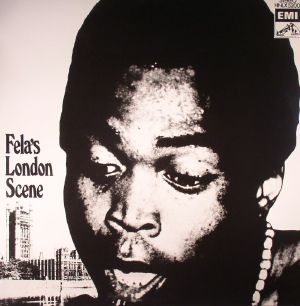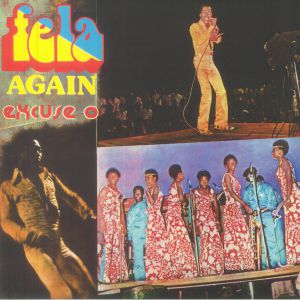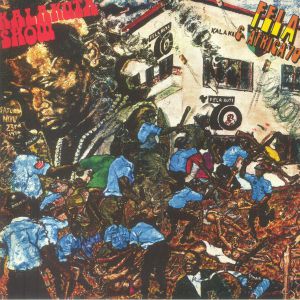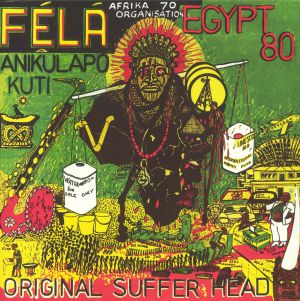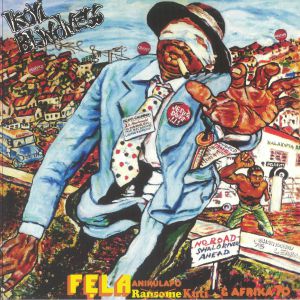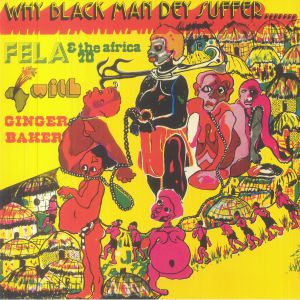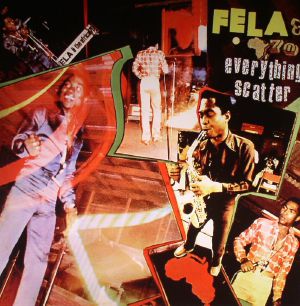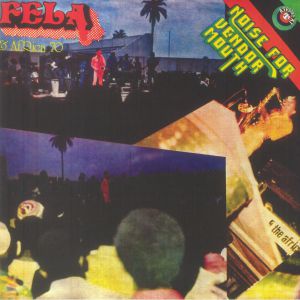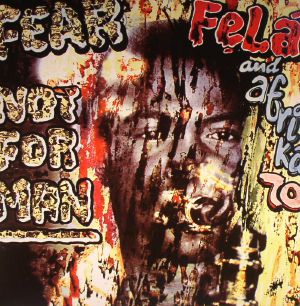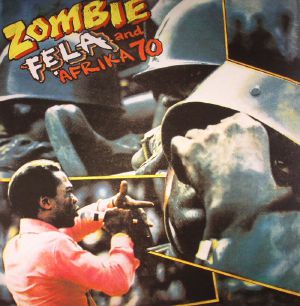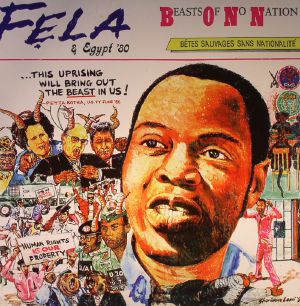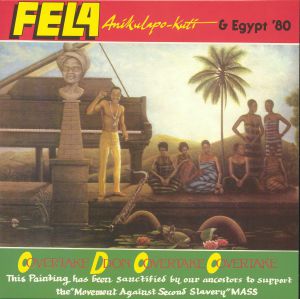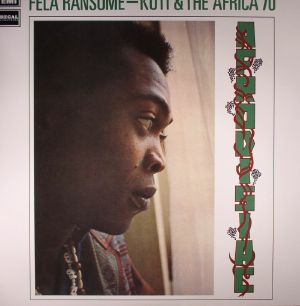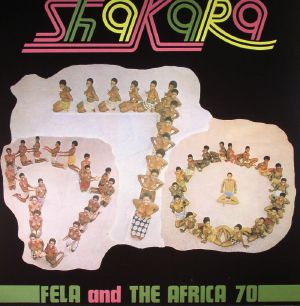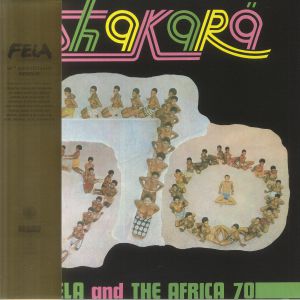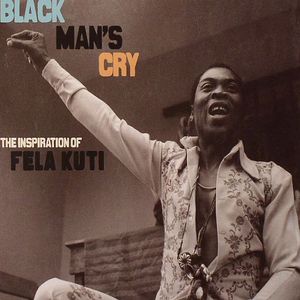Filter
Stock
Music
Featured
Release Title
Price
Tags
Back catalogue: All genres
Juno's full catalogue of All genres
Alben
Roforofo Fight (50th Anniversary Edition) (limited translucent green & orange vinyl 2xLP with obi strip)
Cat: KFR 20068. Rel: 18 Aug 22
International
Review: Nigerian Afrobeat composer, bandleader, and multi-instrumentalist Fela Kuti has a vast catalogue that dates back over half a century. Roforofo Fight is one of the many standouts and it was recorded in Lagos in 1972 on the Jofabro label with the legendary Tony Allen on drums as well as Christopher Uwaifor on tenor, Lekan Animashaun on baritone and many other key players alongside the main man. The lyrics convey Fela's frustration at intolerant and violent behaviour as told through the story of a street fight.
… Read moreGespielt von: AfroBase (Radio Chart), Craig Charles Funk And Soul
in stock $29.92
in stock $17.47
in stock $23.27
Cat: KFR 20041. Rel: 14 Oct 16
International
Review: Rather bizarrely, Fela's London Scene was recorded at Abbey Road Studios in 1971, but didn't get a UK release until the mid 1990s. This is the first time it has appeared on wax since. While the legendary Afrobeat pioneer and his equally revered backing band, Africa '70, may have been in unusual surroundings, the music showcased on the album was pure Nigerian Afrobeat gold. With Fela in fine form on the mic, and Africa '70 providing typically punchy, horn-heavy backing, tracks such as "E Gbe Mi O", "Buy Africa", and "Fight To The Finish" are every bit as good as anything they recorded in their Lagos studio. "Who're You", with its' changes of intensity and gentle progressions, is particularly good.
… Read more in stock $22.16
Gespielt von: Juno Recommends International
in stock $23.27
Review: There are a bunch of reissues of classic Fela Kuti albums dropping right now which is always going to be good news for collectors and Afrobeat lovers a like. As was often the case with his music, this album Kalakuta Show from 1976 was a way of him taking revenge on the military regime that attacked and brutalized him two years prior when the police mounted a large scale raid on Kalakuta Republic incoming Fela's own heavily guarded compound. They were the second raids in eight months and left Fela with scalp wounds and a broken arm, and us with this most remarkable musical retort.
… Read moreGespielt von: Juno Recommends International
in stock $23.27
Review: Like so much of his often faultless work, Original Sufferhead by Fela Kuti is a powerful and politically charged album that embodies the essence of Afrobeat. For that reason, it is well deserving of this reissue as it remains relevant in more ways than one all these years after its original release in 1981 with its signature blend of funk, jazz, and traditional African rhythms, coupled with biting social commentary. The album confronts issues of oppression, corruption, and inequality, with Fela's impassioned vocals leading the charge. Each track is a call to action, urging listeners to rise against injustice and oppression. With its infectious grooves and thought-provoking lyrics, this is a timeless listen that continues to inspire and resonate with audiences around the world.
… Read moreGespielt von: Juno Recommends International
in stock $23.27
Gespielt von: Juno Recommends International
in stock $23.27
Why Black Men They Suffer (reissue) (translucent yellow vinyl LP)
Cat: KFR 20123. Rel: 25 Jan 24
International
Review: Why Black Man Dey Suffer was a major turning point early in Fela Kuti's career. On his first tour of the US the Afrobeat pioneer was turned to a more political, critical mindset thanks to the guidance of Black-rights activist Sandra Izsadore. When he returned home, he took aim at the injustice and inequality he saw throughout post-colonial Africa, and wrote and recorded this mightily potent album as a result. In some ways it's more measured than he would grow to become, but the power of the music is undeniable. Recorded in 1970, when Tony Allen was still being joined by unlikely collaborator Ginger Baker on the drums, this is a landmark part of a true musical legend, now repressed on translucent yellow vinyl courtesy of Knitting Factory.
… Read more in stock $23.27
Gespielt von: AfroBase (Radio Chart), Afro Beat Foundation
in stock $23.27
Gespielt von: Juno Recommends International
in stock $21.90
Gespielt von: AfroBase (Radio Chart), Aleqs Notal
in stock $24.95
Gespielt von: Juno Recommends International
in stock $23.27
Gespielt von: AfroBase (Radio Chart)
in stock $18.43
Overtake Don Overtake Overtake (reissue) (translucent green vinyl LP)
Cat: KFR 20443. Rel: 22 Feb 24
International
Gespielt von: Juno Recommends International
in stock $23.27
in stock $22.16
Gespielt von: Aleqs Notal, Juno Recommends International
in stock $23.27
Shakara (50th Anniversary Edition) (gatefold pink vinyl LP + yellow vinyl 7" with obi-strip)
Cat: KFR 20278. Rel: 12 Jan 23
International
Review: Originally released in 1972, Shakara is a shining example of Fela Kuti & The Africa 70 in full flight. Made up of two 13-minute long pieces, the definitive Afrobeat sound is laid out in undulating, impossibly funky form. Tony Allen holds it down on the drums and the brass section from Tony Njoku, Igo Chico, Lekan Animashaun and Kuti himself punches out with urgency. This 50th anniversary release does things a little differently by inviting the excellent Ezra Collective to deliver their own versions of each track, each getting their side to lay down expansive reflections on the trailblazing groundwork laid by Kuti and his bandmates half a century ago.
… Read more in stock $29.92
Fela KUTI / VARIOUS
Red Hot & Fela (10th Anniversary Edtion) (limited yellow & red vinyl 2xLP + insert)
Cat: KFR 11313. Rel: 26 Oct 23
International
Superhuman Happiness - "ITT (International Thief Thief)" (with Sahr Ngaujah, Abena Koomson & Rubblebucket) (6:03)
Review: Fela Kuti lives on! This is the 10th Anniversary reissue of the classic tribute album Red Hot & Fela, pressed on opaque banana yellow and opaque red vinyl, with proceeds benefiting the Red Hot organization. Since his death in 1997 from complications related to AIDS, Fela Kuti has grown from a West African household name and musician's musician in Europe and the Americas, to a worldwide musical icon. This album hears thirteen collaborative supergroups - made up of stars including Childish Gambino, Kronos Quartet, Spoek Mathambo, Sinkane, Tune-Yards and Baloji & L'orchestre De La Katuba - pay tribute to the Nigerian musician and activist, taking after him in style and cover. Successful, they translate the Afrobeatific sound of Kuti, Africa 70 and Egypt 80 towards an electrified present and future.
… Read moreGespielt von: Charlie bucket/ dancing in space, Juno Recommends International
in stock $28.82
Fela KUTI / VARIOUS
Black Man's Cry: The Inspiration Of Fela Kuti (unmixed CD + booklet)
Cat: NA 5056CD. Rel: 13 Feb 10
Funk
in stock $15.43

 USD
USD






